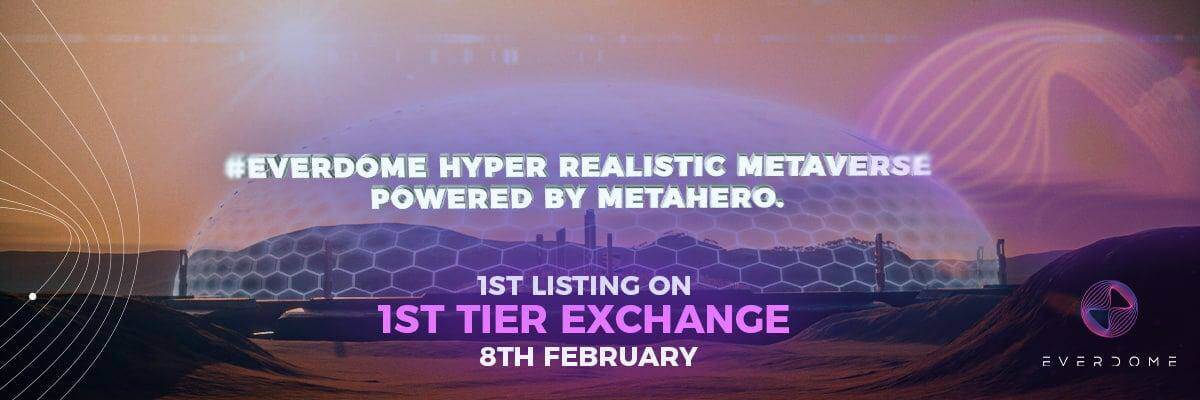Op-ed: Most deals in the metaverse are FOMO and YOLO
The Metaverse is one of the exciting developments coming out of the crypto and blockchain industry. Numerous brands, projects, and publicly traded companies aim to explore opportunities in the virtual world. However, fully functioning Metaverse to invest in doesn’t exist yet, making many deals seem FOMO or YOLO rather than intelligent business decisions.
The Metaverse Is Hot But Incomplete
On paper, the coming together of a virtual world and the real world seems exciting. It enables many opportunities for consumers, brands, companies, and everyone else. However, one also must acknowledge that the Metaverse does not exist yet, except on paper. Building a globally accessible virtual world that connects to the real world will not happen overnight, as there is little or no infrastructure in place to make it happen.
While the concept of a Metaverse is exciting, it doesn’t always make sense for companies to invest a lot of money into something that doesn’t exist today. Staying ahead of the competition often requires taking a risk here or there, but the overall activity by businesses leans more toward FOMO. The Fear of Missing Out seems to outweigh companies’ demand to steer a steady course in COVID-19 times.
Despite the non-existence of the Metaverse, many public companies are eager to explore opportunities. Unfortunately, one must question their ultimate objective, as not all efforts focus on revenue, growing a user base, or any other “traditional” opportunities. Being part of the Metaverse and research into the matter seems to be more critical than actual contributions or bringing more benefits to users.
Walmart
One can argue it makes sense for a retailer to explore Metaverse opportunities. Walmart has filed multiple trademarks in late 2021 to sell virtual products, create a virtual currency, and introduce non-fungible tokens (NFTs). Exploring emerging technologies is essential, even if it remains unclear what Walmart wants to achieve exactly. It appears “Metaverse” is a strong buzzword for companies looking to boost stock prices like “Blockchain” was a few years ago.
NASCAR
There is an opportunity for sports franchises in the Metaverse. Being able to watch live broadcasts in a virtual world with fans from all over the world would present a significant social-oriented use case to this technology. However, NASCAR wants to improve its knowledge of virtual technologies rather than bring in new fans, sell tickets and merchandise, or introduce ways to watch events live. It is a solid sign of YOLO, as there is no clear and concise business plan for exploring this technology [at this time].
Wendy’s
The approach by Wendy’s regarding Metaverse is a bit unusual. Although the chain launched an organic campaign to promote its burgers, the campaign ended up showcasing a digital avatar entering Fortnite — during a food-fight between Team Pizza and Team Burger — to destroy burger freezers for several hours straight. The initiative gained some attention, although that dwindled rather quickly. It seems to be a FOMO-driven initiative, and the company has not commented on further exploration of the Metaverse since.
Nike/Coca Cola/Balenciaga/Gucci
These big brands have one thing in common: they quickly embraced non-fungible tokens for a bigger Metaverse play. For example, Coca-Cola introduced virtual wearables through an NFT Metaverse collection celebrating International Friendship Day. Moreover, the company auctioned off a loot box on OpenSea, with apparel the user can wear in Decentraland. Another FOMO play in a rush to bring exclusive items to the virtual world, even if they offer no real-world benefits.
Gucci took a slightly different approach through its Gucci Garden multimedia experience to Roblox. It serves as a unique and interactive virtual exhibit where avatars become mannequins, absorbing elements of the exhibition. Ultimately, all participants become one-of-a-kind creations. It is an intriguing take on the Metaverse experience, although not something that will keep people engaged for long. A bit of a YOLO effort that can pave the way for other opportunities down the line.
Balenciaga has begun bringing high-fashion game skins to Fortnite. Creating limited-edition items in the Metaverse is an interesting option, although it also opposes what the Metaverse is about. Rather than uniting people, it creates a further divide through exclusivity. The Balenciaga virtual hub provides a virtual store to buy cosmetics, either virtual items or real-world clothing. Balenciaga is intent on being part of the Metaverse from a marketing viewpoint, but contributing real value is a different matter.
Nike follows a similar path since its acquisition of RTFKT, a non-fungible token studio producing digital collectibles. Similar to other fashion brands, Nike FOMO’s into the digital wearable space. However, the company has filed patents to produce and sell Nike-branded virtual footwear, apparel, and accessories. None of these seem to offer access to a real-world counterpart, indicating there is no real “value” as of yet.
Disney
December 2021 saw Disney file a patent for a virtual-world simulator, bringing its theme parks into a 3D world with a high immersion level. However, the company seems to create its own secluded Metaverse, rather than being part of the much broader initiative. The company confirmed its focus is on letting consumers experience everything Disney offers across various products and platforms.
Moreover, its properties and platforms will take center stage in the company’s slice of the virtual world. More segregation in the virtual world isn’t beneficial, although it’s good to see Disney acknowledge the Metaverse has potential. Time will tell if this is a FOMO move or a genuine effort to take the Metaverse into the mainstream.
Time will show
Many Metaverse deals made by big companies and brands do not seem to serve a purpose beyond FOMO and YOLO to not miss out on what may become an exciting technology. However, when they will bring real value to the world remains uncertain, as no initiatives seem to indicate anything along those lines.
That said, the Metaverse is still in its infancy, and without the necessary infrastructure, most of these efforts aren’t significant [yet].
Guest post by Johnny Lyu from KuCoin
Johnny Lyu is the CEO of KuCoin, one of the largest cryptocurrency exchanges launched in 2017. Before joining KuCoin, he had accumulated abundant experience in the e-commerce, auto and luxury industries.
CryptoSlate Newsletter
Featuring a summary of the most important daily stories in the world of crypto, DeFi, NFTs and more.
Get an edge on the cryptoasset market
Access more crypto insights and context in every article as a paid member of CryptoSlate Edge.
On-chain analysis
Price snapshots
More context
Join now for $19/month Explore all benefits




